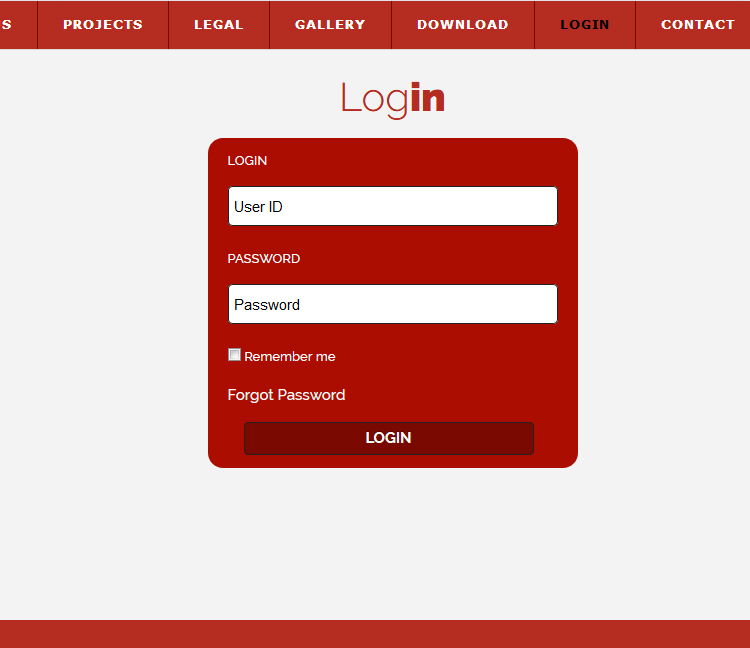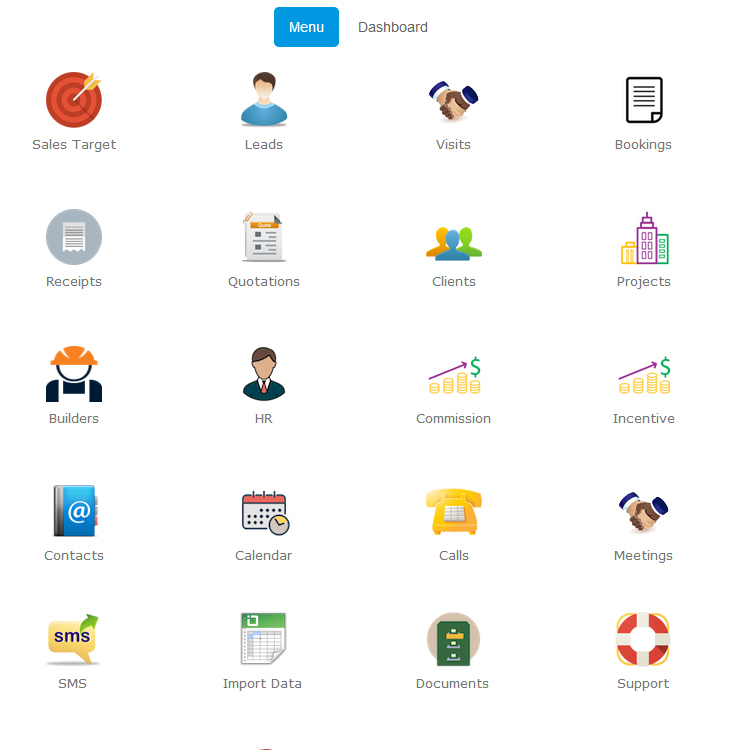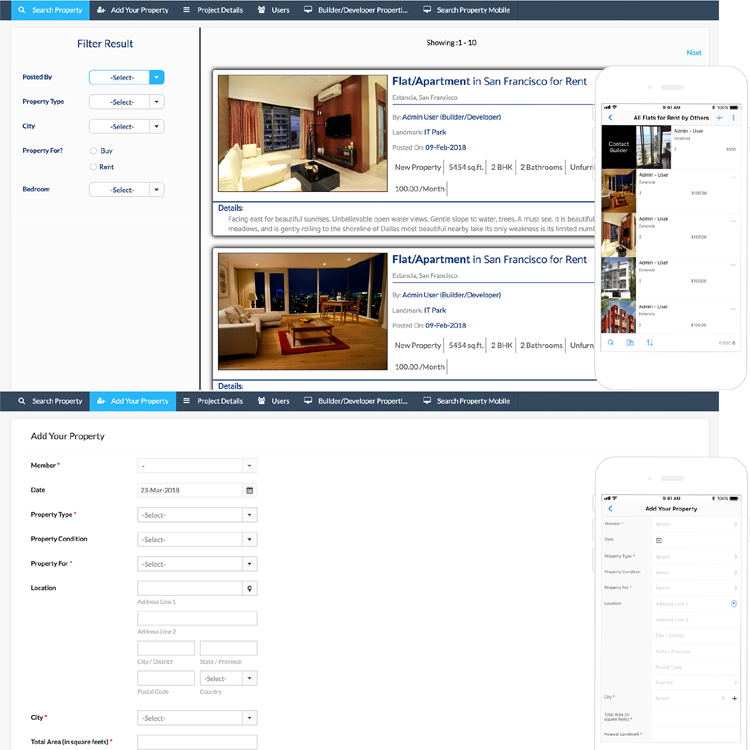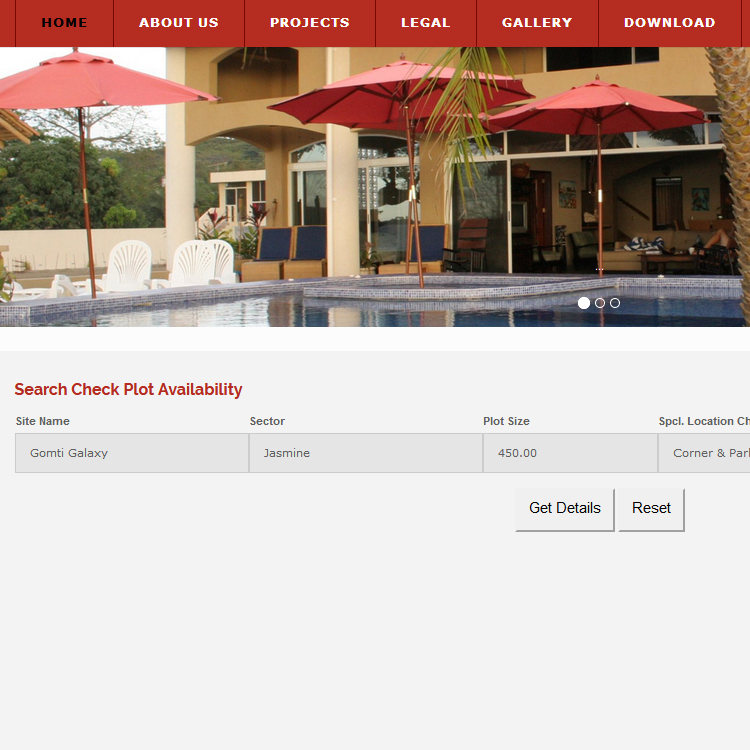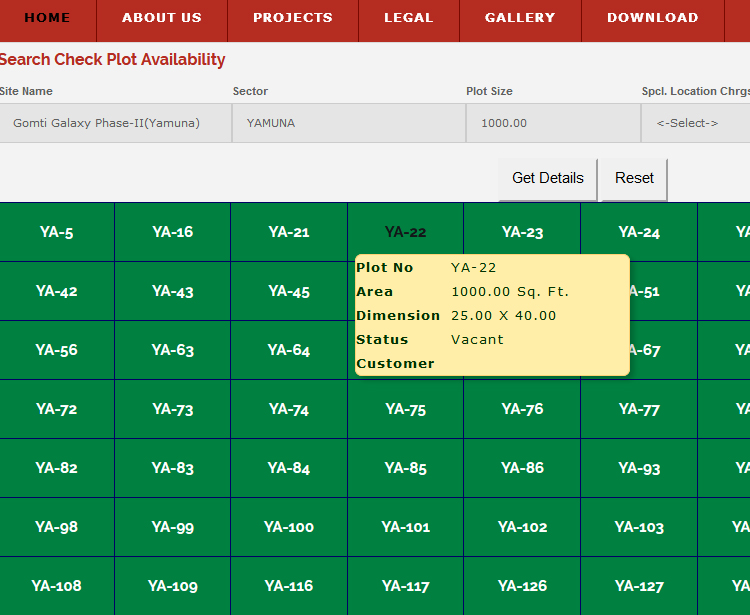Demo
Real estate software
The real estate market has consistently shown high levels of activity. There has been consistent growth in the number of customers, property items, purchases, and sales, as well as rentals of both residential and commercial space. It may be a hassle for company owners and real estate salespeople to keep track of everything in their heads and handwritten records. Property management software will inevitably be widely used. It is a simple job since web design firms provide various digital services. But the truth is, there are advantages and disadvantages to every single one of them. Let us examine the finest software for the real estate industry and figure out how to digitize the sector without breaking the bank.
Real Estate Software Types
- Multiple software options exist to streamline everyday tasks in real estate firms.
- Customer Relationship Management. It's a category of software that streamlines a real estate agent's routine. A primary customer relationship management system may help you remember critical dates and keep track of sales and client interactions from the initial call to the final sale. The analytical and statistical features of the more advanced real-state software systems are. Property object catalogs, tables, and reports are unique aspects of a customer relationship management system designed for the real estate business.
- The ERP system. This is a higher-end kind of software. Document management, accounting, advertising, human resources, information technology, and the company's website may all be streamlined with the help of ERP software.
- Apps for mobile devices. For real estate firms, there is no better option than this. The app's crowning feature is the constant, in-the-moment interaction between employees and clients. Moreover, it's the least expensive program of its kind.
Importance
- Trust, not simply the ability to close transactions, is what matters most in real estate. In reality, many purchases are made after being recommended by someone, such as a contact, a customer, a friend, or a family member. Real estate transactions, whether purchasing or selling, may take a long time to complete. Additionally, it may need several follow-ups and renegotiations.
- In these cases, real estate agents may save time and effort by employing customer relationship management software.
- Examples include contact management, pipeline tracking, work scheduling, and general organizational support. Deals may be closed faster, and more connections can be developed with the help of real estate CRM software.
You Should Be Able To Take The Following Processes Online With The Help Of The Program:
- Making a database of real estate assets and describing them in depth.
- Expand your clientele by learning what people like.
- A fast lookup of client-acceptable real estate offers.
- Putting in place a system for alerting patrons.
- Ad placement and maintenance on advertising sites.
- Customers may have direct conversations with real estate agents and take part in video tours.
- Keeping an eye on the market to see what's available and who could be interested in purchasing it.
Benefits Of A Customer Relationship Management System For Real Estate Agents
As a real estate agent, you may find real estate CRM software to be a beneficial CRM tool. It might be the key to reaching more clients if you feel you have been missing in certain areas. Using a customer relationship management system in the real estate industry may boost productivity and establish client trust.- Allows You To Collect Any Potential Leads
- Every real estate agent risks losing potential clients because of poor lead management. However, with reliable real estate CRM software, you can effortlessly collect leads from all the most famous listing websites.
- Maintain Consistent Communication With All Potential Clients
- Competition is standard in the real estate market. If you take even a moment too long, the client may decide to look elsewhere for a home. CRM, therefore, plays a significant part in the real estate sector.
An effective real estate CRM will facilitate the sending of automated emails. These would notify prospective customers through email of developments in the real estate market. Features of real estate CRM, such as a virtual phone system, may also be used to establish credibility and provide the impression of being locally based.
| Domain |
Single Domain (.com,.in,.org) etc. |
|---|---|
| Hosting |
1 GB. |
| Bandwidth |
10 GB. |
| Email Accounts | 10 |
| Pages | 5 |
| Amount | Rs. 90000/- |


